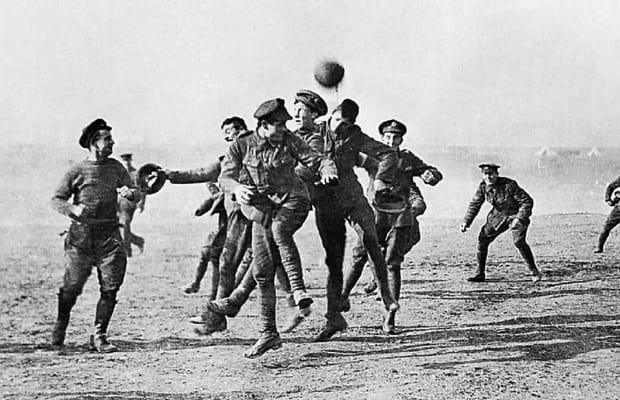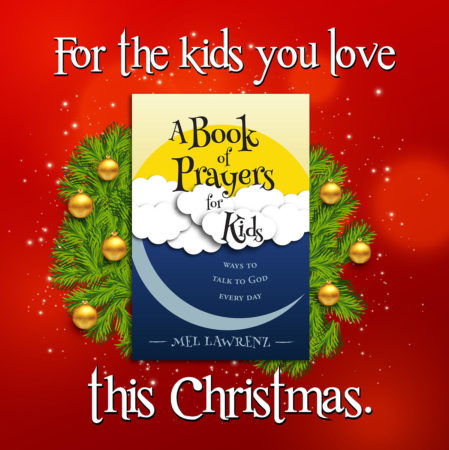Christmas is always a difficult day for a soldier on a battlefield far from home. How could it be that the Prince of Peace had come, and yet men still shot each other with rifles?
On Christmas of 1914 something happened that nobody could have ever predicted. British and German troops were bogged down in the muddy cold trenches in Flanders Field which was their only protection from machine gun fire. Between them was “No Man’s Land” a field the width of a football field, strewn with decaying bodies and barbed wire. The First World War was bogged down in a quagmire. Bodies were stacked like cordwood.
But as Christmas approached, something in the soldiers warmed. On December 23 the German soldiers withdrew to a monastery ruin where they held Christmas worship. They put up Christmas trees, Tannenbaums, with lights that were so different from the grayness all around. British soldiers on the other side of the line couldn’t help but risk raising their heads to peek at the Tannenbaums–now hundreds of them, and they began to sing Christmas carols familiar to them. Two British officers, defying orders, ventured out of the trenches to propose a Christmas truce to their enemies, but by now rank and file soldiers had already begun talking to and meeting up with groups of their opponents. The British sang everything from Christmas carols to Tipperary, and the Germans responded with a Christmas concert of their own. A German violinist stood atop his parapet and played on his violin. A French soldier, a member of the Paris Opera, sang out “O Holy Night.” A German officer named Thomas gave a gift to a British officer–a Victoria cross and letter from a fallen British soldier, and Leut. Hulse, from the British side responded by giving Thomas a silk scarf.
Each side buried their dead. They bared their heads and recited the 23rd Psalm. Nineteen-year-old Arthur Pelham-Burn wrote: “I think this is one sight we’ll never see again.” As Christmas day 1914 drew to a close and darkness fell, the soldiers gradually returned to their trenches. For two whole days they had ceased being enemies, and the world was at peace. In the darkness a voice started singing one of the most familiar Christmas carols, Silent Night.
Peace is a noble aspiration at any time, in times of war or in times of harmony. When you find yourself at odds with someone, or when you’re feeling pretty good about your relationships. When you feel in harmony with God, or when you feel a discord. It is always important to pursue peace.
Peace is so much more than the absence of conflict. Maybe you can lay your head on your pillow tonight and thank God that you experienced no conflict, but that is not the same thing as experiencing peace. If a husband and wife get tired of shouting at each other and both slip into an icy indifference, that is not peace.
In Hebrew the word for “peace” is shalom, a well wishing that says it all: May you be healthy, whole, and complete. May you know where you fit in the universe, and may you find tranquility there. Augustine said peace is “the tranquility of order.” When you know where you fit into God’s world—that you are higher than the animals, but less than God—that is the sense of order that brings tranquility.
Therefore, we pray for peace at Christmas. We pray that we all will discover the Christmas shalom—the confidence that when God’s favor, his undeserved grace, rests on us, we will know a peace that goes beyond understanding. The peace gifted to us because Christ came into the world and put things in order, beginning with his birth and completed in his sacrificial death and triumphant resurrection. He is “the Prince of Peace.”

